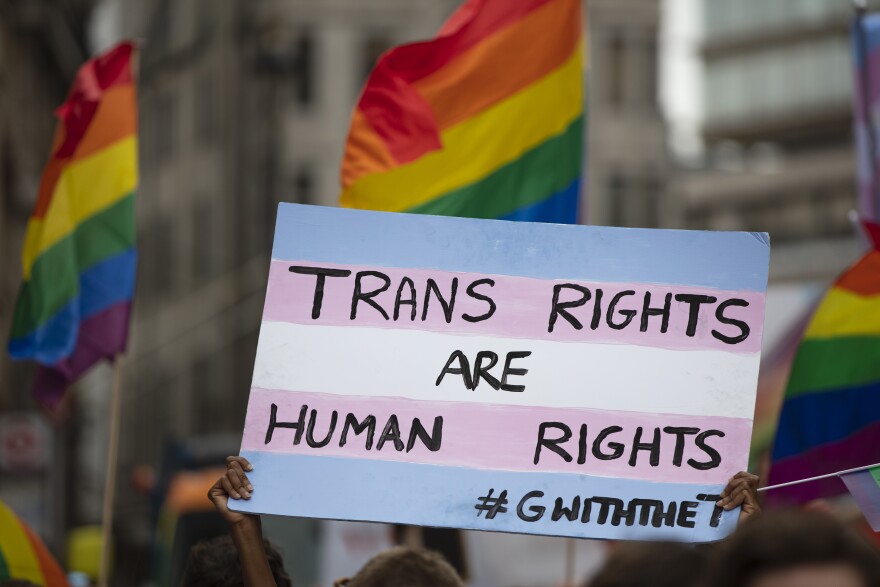A report from the Human Rights Campaign found that 37 transgender and gender non-conforming people were killed in 2020. That’s the highest number of deaths reported in a single year since they started collecting data in 2013. The organization also found that deadly violence against transgender people disproportionately affects trans people of color, who make up 85% of the victims.
There are groups in Milwaukee working to address those alarming statistics and improve the lives and health outcomes for transgender people. Diverse and Resilient is an LGBTQ+ public health agency and Sisters Helping Each Other Battle Adversity (SHEBA) is a Black trans women social group that supports and empowers transgender women.
Yante Turner, a Black trans man, is the inclusion and equity coordinator of Diverse and Resilient and a SHEBA facilitator. He says when Diverse and Resilient spoke to trans people in Wisconsin about what resources they need and how to address the rise in violence against trans people, they spoke about needing their basic needs addressed before anything else.
“People were like, ‘We don’t even have housing, what are you talking about leadership? Employment? I don’t have a house, like I don’t care about having no 9-to-5 when I don’t know where I am going to sleep,'” he says.
Turner says while nonprofits like the one he works for are part of the solutions, they can’t be the only piece in working towards solutions. He says it needs to be about bringing community members together and taking action that prevents the deaths of trans people.
“We can’t just cross our fingers and hope that like the deaths of Black trans people will stop. It don’t work like that and so we need elbow grease. We need people power,” he says.
Turner says the first step in that violence prevention is increasing compassion for trans people. He says compassion is not about cisgender people trying to understand the experience of living life as a trans person - he says no one is asking for that per se. But there still needs to be more compassion towards the struggles of the group.
Once that compassion exists, Turner says, then he hopes it will be easier to create programs that address the needs of trans people.
“What actually has to happen is people need to get a lot more compassionate about other people,” he says. “To be compassionate, right, to see somebody and be like, ‘Regardless of what you’ve got going on, you have inherent dignity, your inherent dignity gives you worth, your worth means you are able to have a house, you deserve a house, you deserve water, you deserve food, you deserve a way to sustain yourself.'"
Bringing that attitude to everyone, not just trans people, is what Turner sees as a key to making Milwaukee and the rest of the world a better place. He says that work should have been done at the beginning of human civilization but says now is “better late than never." As trans people, especially trans people of color and those facing poverty, continue to face violence, he says this work is about making sure that no one in the future has to die because of their identity.
“We can’t draw back time, right, we can’t undo things, as badly as we want to, so how do we hold people that have already been harmed and then also make sure it never happens again,” he says.







